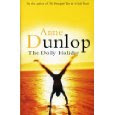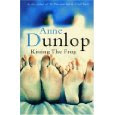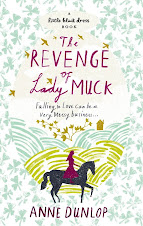
THE RULES OF PARENTING
Richard Templar
When I first received this book I thought: Oh no! I can’t bear self help books, particularly self help books in a series and The Rules of Parenting is just one of Richard Templar’s exhaustive list of publications; he has made a career out of ‘helping us to help ourselves’; there are books of rules by Richard about life, love, wealth, work, management; etc ad nauseam.
I threw The Rules of Parenting under the bed, and it stayed there, covered in dust, until after this morning’s school run.
School starts at 7.40am. We live 20 minutes from school. Always we leave the house at least half an hour before bell time because this is the Middle East and the roads are unpredictable. It’s not just the colourful driving; last week there was dense fog on the highway. Today the problem was more commonplace, the traffic was brutal; we sat bumper to bumper, and as the minutes ticked away my children became increasingly restive. “How late are you now, Mummy?” “Has the first bell gone yet, Mummy?” “Do you think they’ll have lined up, Mummy?”
By the time we reached school they were five minutes late. They dashed into their classrooms while I parked the car then followed Bea for she’d forgotten her lunchbox. When I got to her classroom her teacher was scolding her for being late.
Well, I don’t mind saying I was furious with Bea's teacher for scolding my darling Bea. I snapped at her: “Bea is late because I don’t have a helicopter.”
“Don’t you think you were rather aggressive?” said Nick.
I was defiant. I said: “Do you think it’s OK for your daughter to be scolded for something she wasn’t in control of? She wasn’t driving the car. I was.”
“You’re far too over protective,” said Nick
Blast off! A parenting row was starting to simmer; we have these rows on a regular basis. I yell and Nick sulks and always we end up having to agree to disagree. So before it happened again I retrieved The Rules of Parenting from under the bed, to find out how Richard would have handled the situation.
The Rules of Parenting has 100 rules, they’re divided into ten sections; there are sections devoted to attitude, personality, discipline; school. For school Richard advises: it comes as a package and if you attend the school you must accept the package. Fair enough. Then Richard says: Always fight your child’s corner. Your child needs to know you’re there for them if things get beyond their control. That’s what parents are for.
Thanks Richard! I immediately wrote to the school, kindly requesting Bea's teacher refrain from scolding her for lateness. I emphasised I am always available to discuss any problem any member of staff might have with my children’s time-keeping.
Then I read the rest of the rules.
And they’re really very useful. (There’s even one for me which states: Yelling isn’t the answer.) But more than useful they’re right. It might have taken Richard 100 headings to say it but the message is simple and true. That both parents and children are human beings and all human beings need love and respect. So, children: love your parents. Parents: respect your children.
And the rest will sort itself out
*
VERDICT: For a sense of perspective allow me to quote Richard’s Rule 1: Really good parents expect their children to be noisy, messy, bouncy, squabbly, whinging and covered in mud.













